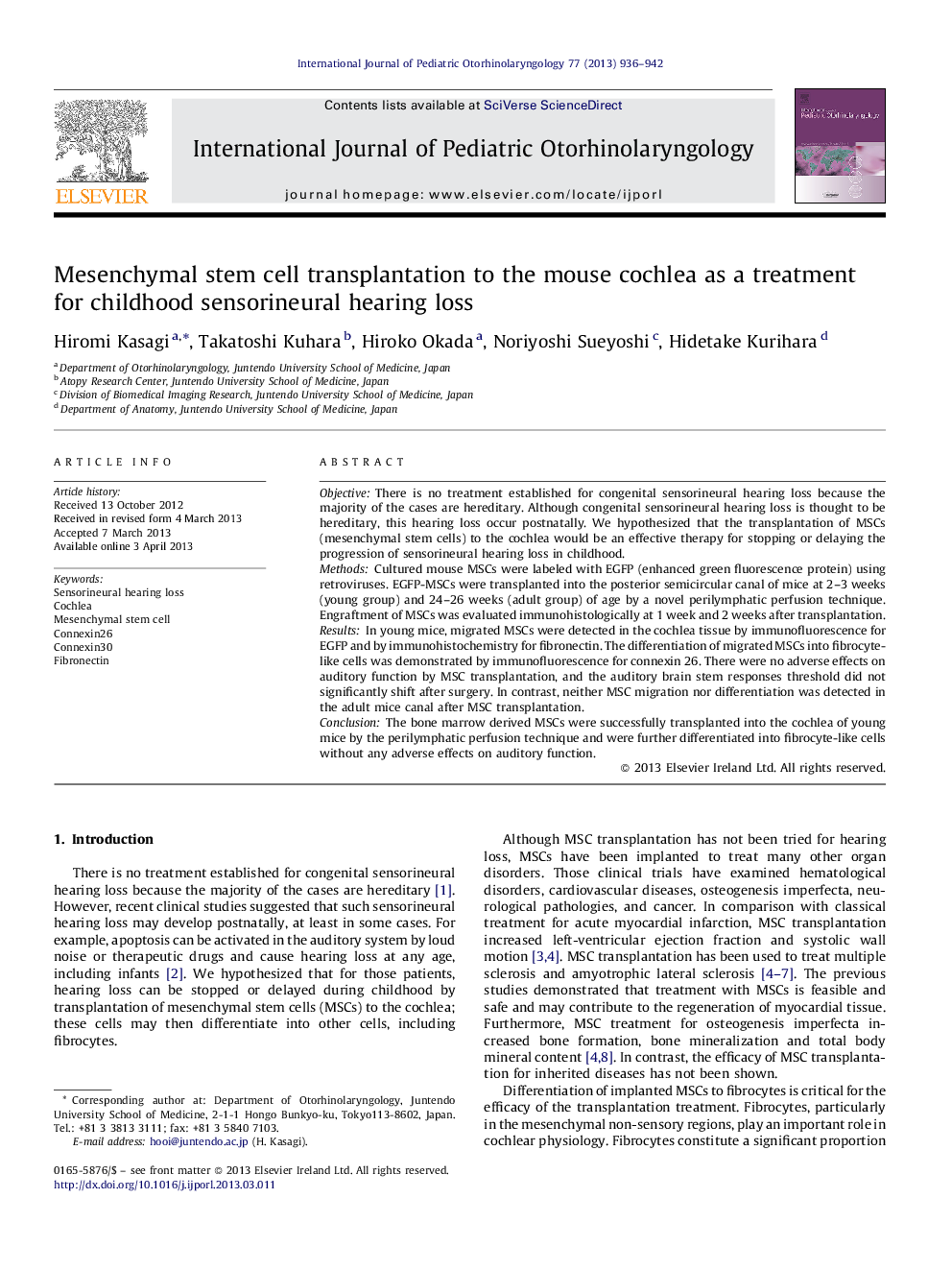| Article ID | Journal | Published Year | Pages | File Type |
|---|---|---|---|---|
| 6213685 | International Journal of Pediatric Otorhinolaryngology | 2013 | 7 Pages |
ObjectiveThere is no treatment established for congenital sensorineural hearing loss because the majority of the cases are hereditary. Although congenital sensorineural hearing loss is thought to be hereditary, this hearing loss occur postnatally. We hypothesized that the transplantation of MSCs (mesenchymal stem cells) to the cochlea would be an effective therapy for stopping or delaying the progression of sensorineural hearing loss in childhood.MethodsCultured mouse MSCs were labeled with EGFP (enhanced green fluorescence protein) using retroviruses. EGFP-MSCs were transplanted into the posterior semicircular canal of mice at 2-3 weeks (young group) and 24-26 weeks (adult group) of age by a novel perilymphatic perfusion technique. Engraftment of MSCs was evaluated immunohistologically at 1 week and 2 weeks after transplantation.ResultsIn young mice, migrated MSCs were detected in the cochlea tissue by immunofluorescence for EGFP and by immunohistochemistry for fibronectin. The differentiation of migrated MSCs into fibrocyte-like cells was demonstrated by immunofluorescence for connexin 26. There were no adverse effects on auditory function by MSC transplantation, and the auditory brain stem responses threshold did not significantly shift after surgery. In contrast, neither MSC migration nor differentiation was detected in the adult mice canal after MSC transplantation.ConclusionThe bone marrow derived MSCs were successfully transplanted into the cochlea of young mice by the perilymphatic perfusion technique and were further differentiated into fibrocyte-like cells without any adverse effects on auditory function.
